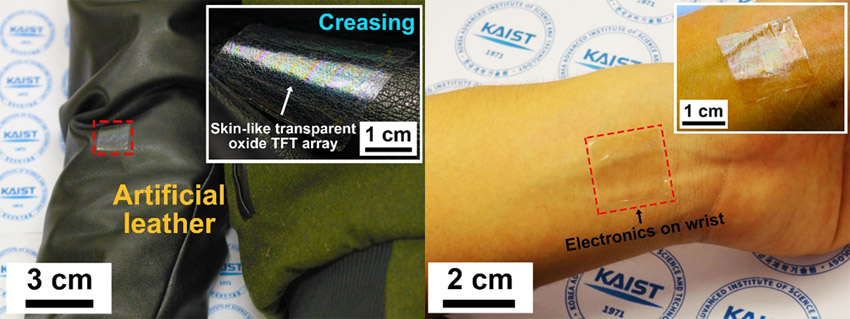The age of wearables has just begun and we don’t see it ending soon. While flexible displays are no longer a riddle for scientists, low cost and high performance ones for the devices that use them is. Yet, the researchers from Korea Advanced Institute of Science and Technology (KAIST) believe they have made a breakthrough #objectmagic

The team developed ultra-thin and transparent oxide thin-film transistors (TFT) ” for an active-matrix backplane of a flexible display by using the inorganic-based laser lift-off (ILLO) method.” If that sounds like too much to handle, you can read about the entire process right here. The importance of this experiment was that the resulting display had an optical transparency of 83% and could be flexed and turned remarkably, as the a couple of severe bending tests showed.
The two problems manufacturers had when it came to wearables and consumer electronics was the low transparency and therefore, performance, of such displays and the cost at which they came. This object, though, should make both issues redundant. Plus, the display is so thin that it becomes indistinguishable from skin making future wearables almost invisible.
Follow TechTheLead on Google News to get the news first.

























